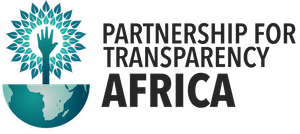The Partnership for Transparency (PTF) is pleased to announce the establishment of a new affiliate in South Africa – Partnership for Transparency Africa (PTF-Africa).
“To maximize our impact and ensure local ownership, we’ve recognized the need to establish a physical presence in the regions in which we work,” said Richard Stern, PTF’s president. “PTF already has three other affiliates based in Europe, the Philippines and India. These organizations are legally independent but closely integrated arms of PTF that enable us to better understand local contexts, issues and partners.”
PTF-Africa was officially registered under the auspices of three founding board members – Mervyn King, Carolyn Stremlau and Robert Hunja – by South Africa’s Companies and Intellectual Property Commission (CIPC) in July 2017. The legally independent but closely affiliated organization will collaborate with PTF in its mission to support civil society organizations (CSOs) in Africa to develop innovative methods to improve governance, resource use and public service delivery.
“We’re approaching corruption on the continent differently. Rather than seeking to name-and-shame perpetrators, we want to help reduce opportunities for the abuse of power in the first place,” says PTF-Africa CEO, Sarah Little. “Citizens have a set of rights and responsibilities, including the right to participate in decisions that affect our communities, and a responsibility to help our leaders and public servants reach a higher level of integrity.”
PTF-Africa is expected to better support operations across the continent, following on past successes in Cameroon, Nigeria, DR Congo, Kenya, Uganda, Tanzania, Liberia, Sierra Leone, and Ghana, including PTF’s flagship Citizen Action Platform (CAP), an extension of UNICEF’s U-report program that serves as a mechanism for citizens to submit feedback and secure improvements in government service delivery at the local level.
PTF recently invested in the Municipal Council Business Management and Good Governance Fellowship [BMF] in Cameroon, run by IGI-FITCAM, by supporting an assessment of how participants applied what they learned about governance and legal and regulatory challenges in their daily work. We are actively developing a rule-of-law program and recently partnered with the Construction Sector Transparency Initiative (CoST) in Malawi to develop a program for greater CSO engagement that will improve transparency and integrity in public procurement. PTF is also working with the African Development Bank (AfDB) to refresh its CSO engagement strategy.
E-mail info@ptfafrica.org for more information on programs and partnerships.





